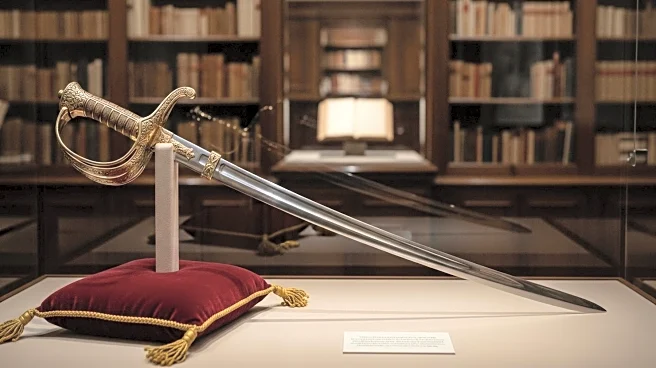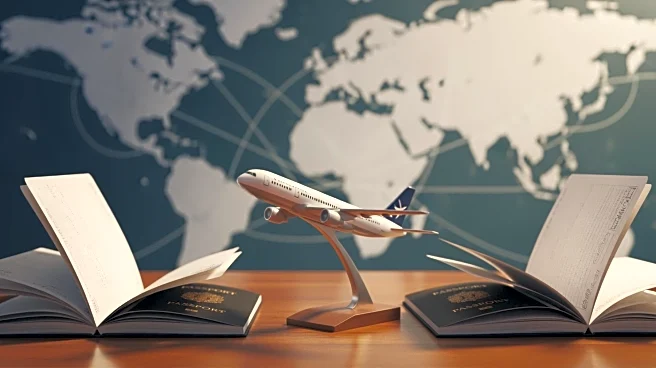What's Happening?
Todd Arrington, the director of the Dwight D. Eisenhower Presidential Library, has resigned following a disagreement with the Trump administration regarding the gifting of a historical sword to King Charles. The dispute arose when U.S. State Department officials sought to present an original Eisenhower sword from the library's collection to King Charles during President Trump's visit to the United Kingdom. Arrington refused to remove the artifact, which was accepted as a donation, leading to tensions with the administration. Ultimately, a replica of the sword was gifted instead. Arrington, who had been in his position since August 2024, stated that he was pressured to resign or face termination.
Why It's Important?
This incident highlights the complexities and sensitivities involved in diplomatic gift exchanges, especially when historical artifacts are concerned. The resignation of a library director over such a dispute underscores the challenges faced by cultural institutions in balancing preservation with diplomatic gestures. The situation also reflects on the administration's approach to international relations and the symbolic importance of gifts in reinforcing alliances. The decision to gift a replica instead of the original artifact may have implications for how cultural heritage is valued and protected in diplomatic contexts.
What's Next?
The resignation may prompt a review of policies regarding the use of historical artifacts in diplomatic exchanges. It could also lead to discussions within the National Archives about the autonomy of library directors in making decisions about their collections. The incident might influence future diplomatic gift strategies, ensuring that cultural and historical considerations are adequately addressed. Additionally, there may be further scrutiny of the administration's handling of cultural heritage in international relations.
Beyond the Headlines
The event raises questions about the ethical responsibilities of cultural institutions in preserving historical artifacts. It also highlights the potential conflicts between governmental directives and the mission of preserving national heritage. The situation may lead to broader discussions about the role of presidential libraries in diplomacy and the extent to which they should participate in political gestures. This could have long-term implications for how cultural diplomacy is conducted and the preservation of historical artifacts.








